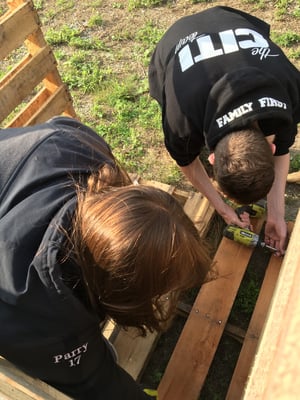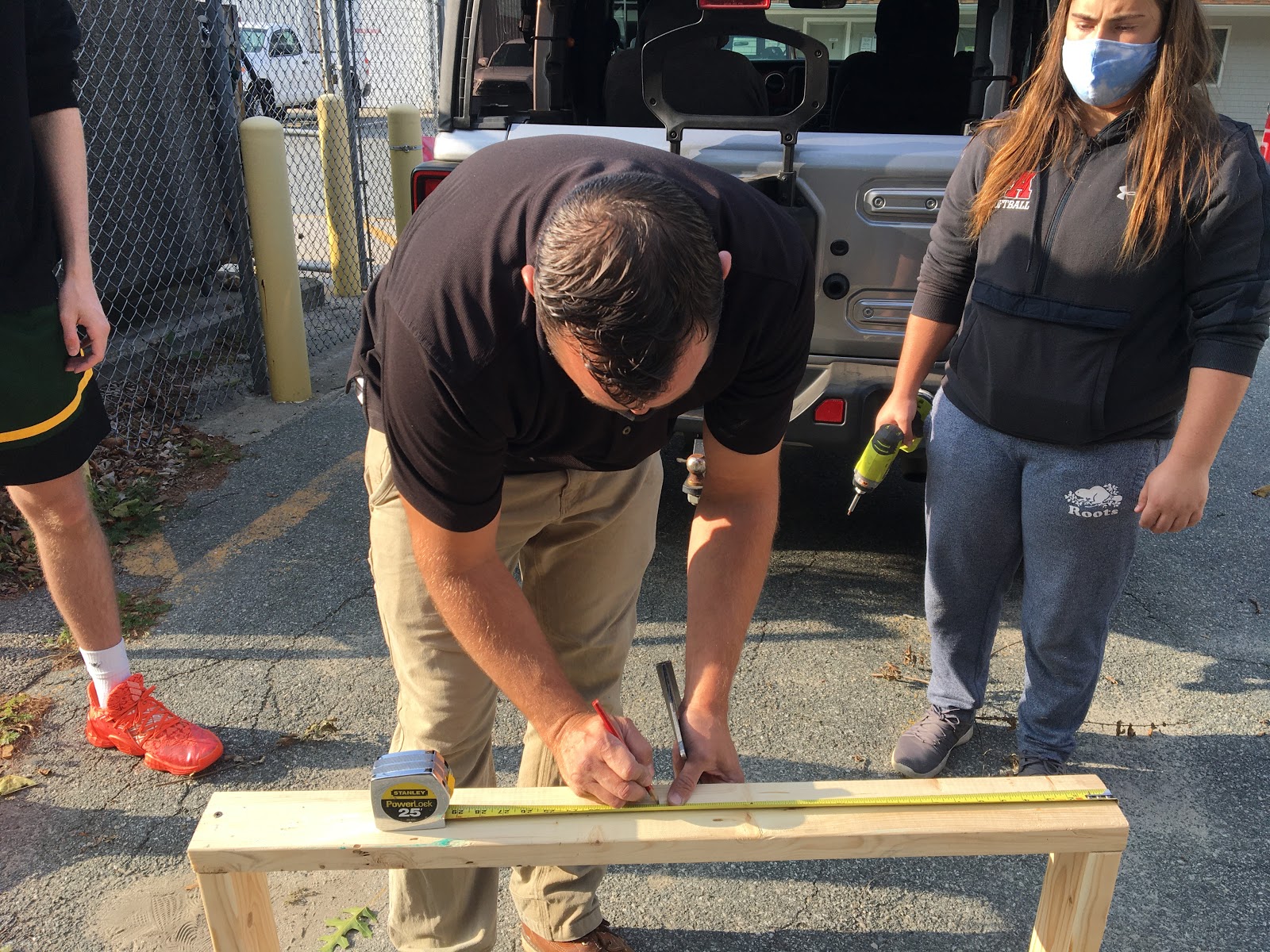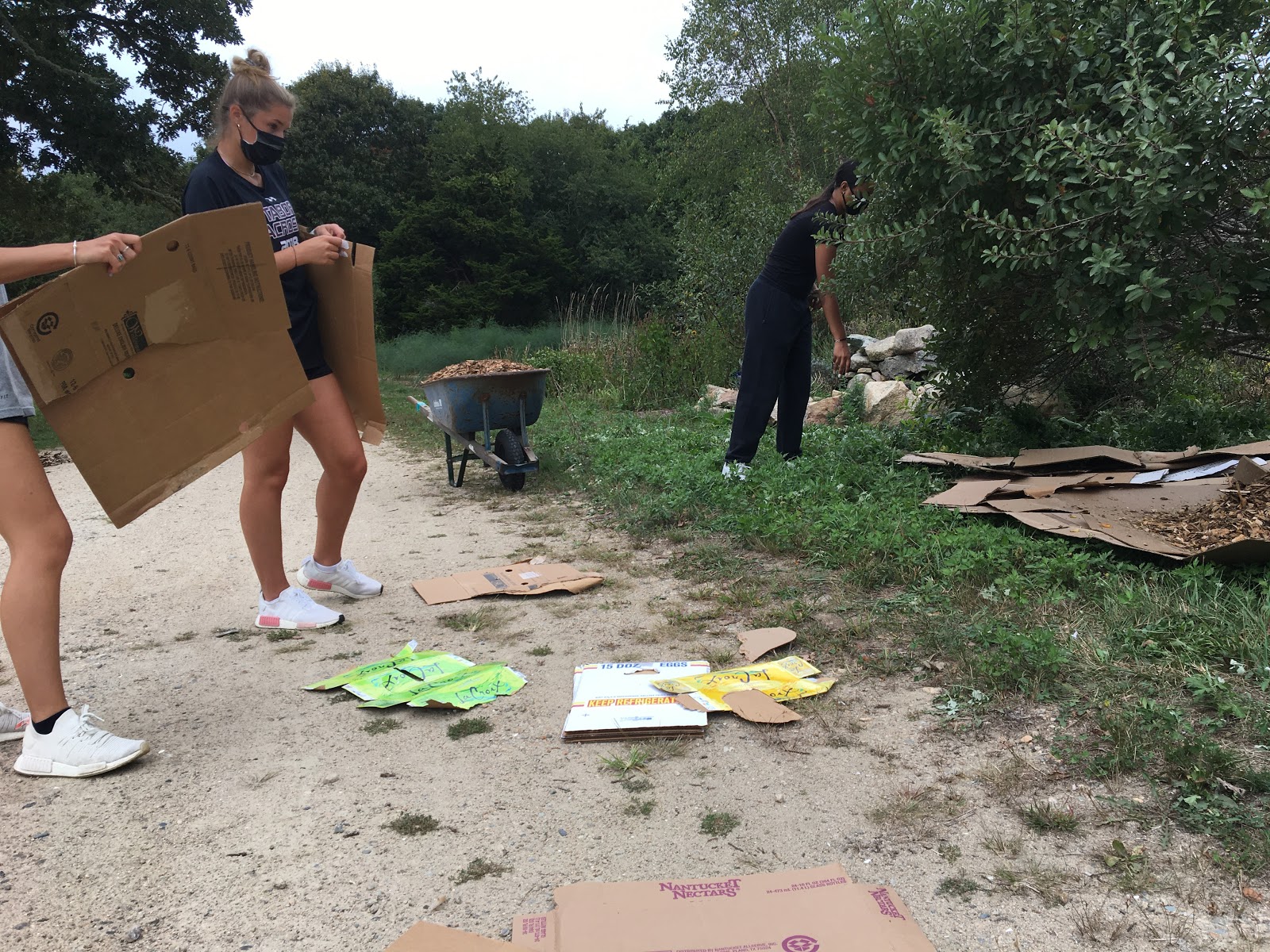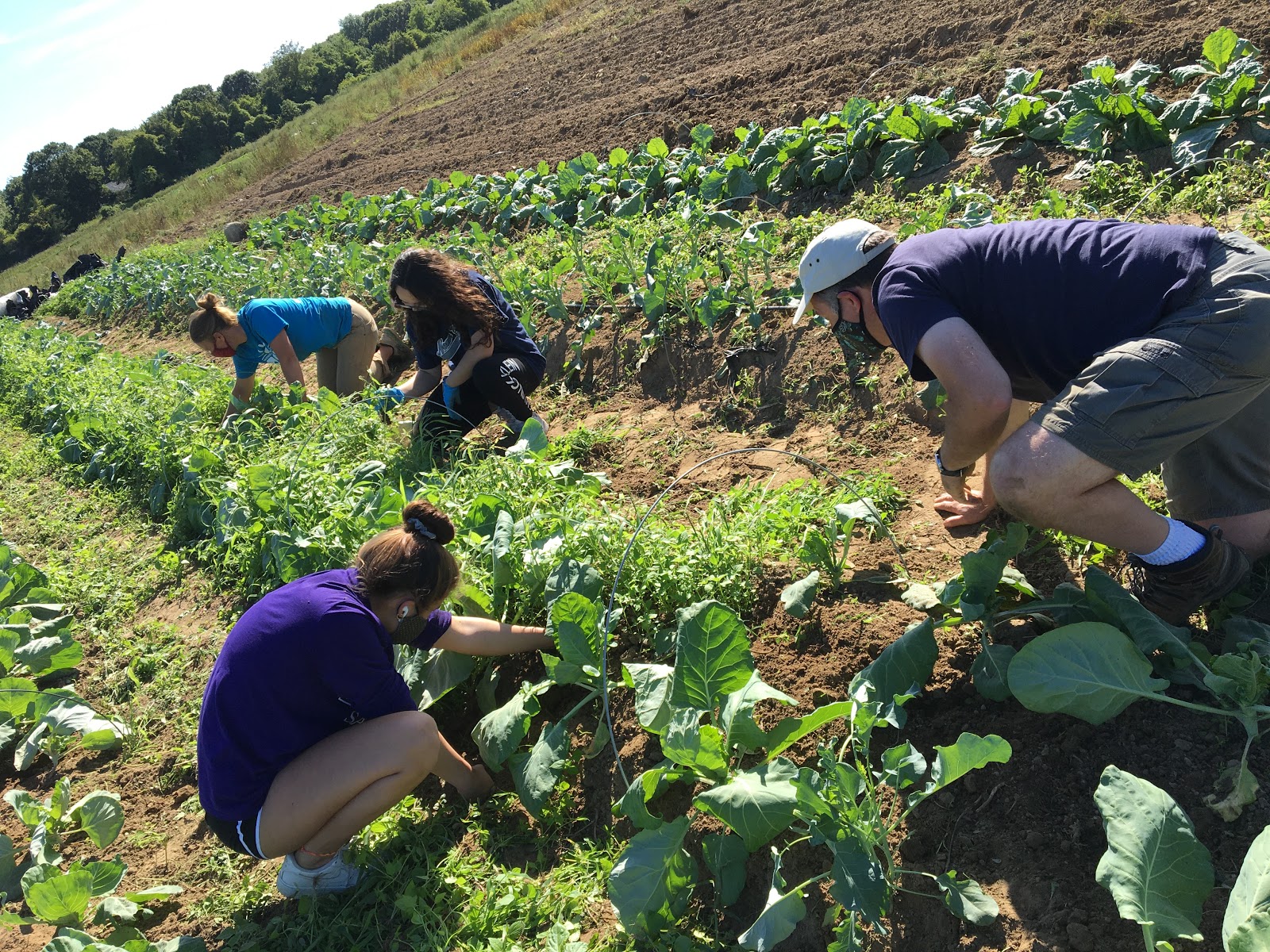Community Service is in full swing this fall at Tabor… it just looks a little different than usual. We had to think a little more locally and plan a little more strategically, but both the faculty and students involved have done great work so far, focusing on issues around food security, building a good sense of community, and the local environment.
One issue that really came to light in the pandemic was the fact that many people face food insecurity, and this concern drove many of the projects we’ve focused on. Over the summer, faculty and staff came together to form the “Baking Brigade” with the food pantry at the Church of the Good Shepherd in Wareham, a longtime community partner. That work continues now with students baking cookies and other goodies for the meals that the church provides to around 60 people each week. In addition to this, we hope to be able to provide fresh produce from our greenhouse, which has been up and running on hydroponics systems all summer and fall. Finally, we have been able to take small groups of students to local farms who rely on volunteers and whose missions center around providing healthy and sustainable food items to locals in need. We have been proud to partner with Sharing the Harvest Farm, associated with the Dartmouth YMCA, and Round-the-Bend Farm, also in Dartmouth, in the past and look forward to continued work with them.
To build a stronger local community, students have been writing cards to essential workers, both in and beyond the Tabor community. We’ve engaged in projects to spruce up areas around Marion, make Tabor’s campus more environmentally sustainable, and do clean-up events around town as well. This helps us all feel great about where we live and gets trash out of the ecosystem, where it can potentially harm wildlife or make its way into the water. To further improve our local environment, we have continued our connection with the Sippican Lands Trust and are removing invasive species from the plot known as the Williams Parcel on Front St. These efforts support native species and improve biodiversity in the region. There are many more things we wish we could be doing, but know we are doing what we can right now and look forward to reconnecting with other people and organizations as it becomes possible.
Seniors Kat Parry and Griffin Walbridge construct a reclaimed-pallet compost bin for the greenhouse.

Head of Facilities, Chris Boucher has been instrumental in getting these sustainability projects off the drawing board.

Work at the farms includes using cardboard boxes and wood chips as mulch to prevent weed growth, instead of herbicides, as Jae-lyn Rodriguez and Caroline Donley learn.

It also means a lot of weeding, which goes faster when a good sense of humor accompanies us, as Caroline Usman, Menasha Leport, and Mr. Watt know well.









